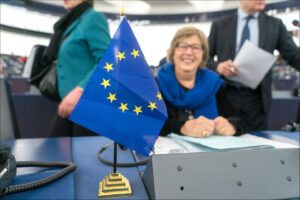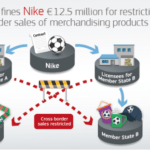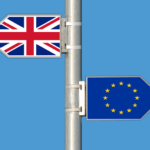The 25th anniversary of the European Economic Area (EEA) Agreement, in force since 1994, was the main topic of the EEA Consultative Committee meeting that took place on 23 and 24 May. This committee, which represents employers, workers and other civil society players of EEA member states, insisted on the importance of completing the internal market and taking into account its social dimension.
At a special session dedicated to the 25 years celebration, Dilyana Slavova, President of the External Relations Section of the EESC, defined the EEA Agreement as a success story; more than a trade agreement it’s an example of cooperation between countries that share the same values. Henri Gétaz, Secretary-General of the EFTA, stressed the resilience of the EEA Agreement: We went through the financial crisis, up to four reforms of EU Treaties, and the EEA is still in place and working; it takes a lot of work to get this level of cooperation, and also political effort.
The members of the EEA Consultative Committee approved a report and resolution on the Benefits of 25 years of the EEA Agreement, drafted by Judy McKnight, in representation of the European Economic and Social Committee (EESC), and Halldór Árnasson, from the European Free Trade Association (EFTA) Consultative Committee. The resolution takes stock of the progress made since the entry into force of the EEA Agreement in 1994.
It is generally agreed that the internal market has had a positive effect, with economic benefits that amount to about 8.5% of the European Union’s GDP. However, according to the report approved by the EEA Consultative Committee, integration in the internal market is still far from fulfilling its potential, especially in the field of services, which account for around 75% of the GDP in the EU, while only for around 25% of trade in the internal market.
Social issues
Equally important is the development of the social dimension of the internal market. As stated by Judy McKnight, rapporteur of the resolution, economic growth is not enough if it goes just to 1% of the population, and the same goes for sustainability. The EEA Agreement contains important legislation in the field of labour law, workers’ rights, health and safety at work and anti-discrimination. The social dimension of the agreement received a renewed focus through the European Pillar of Social Rights, which aims to ensure equal opportunities and access to the labour market, fair working conditions and social protection and inclusion.
The EEA Agreement Consultative Committee also approved a report and resolution on the European Labour Authority (ELA).
The resolution welcomes the establishment of the ELA, which will be up and running in 2019 and reach its full operational capacity in 2023, but also calls for an adequate funding and staffing and for a full implementation of EEA labour law. While acknowledging the economic benefit of an integrated labour market, it also asks the ELA to guarantee a fair mobility within the EEA member States and to facilitate the participation of social partners from both the EU and the EFTA in its relevant bodies.
More information
Access the complete news







Leave a Reply